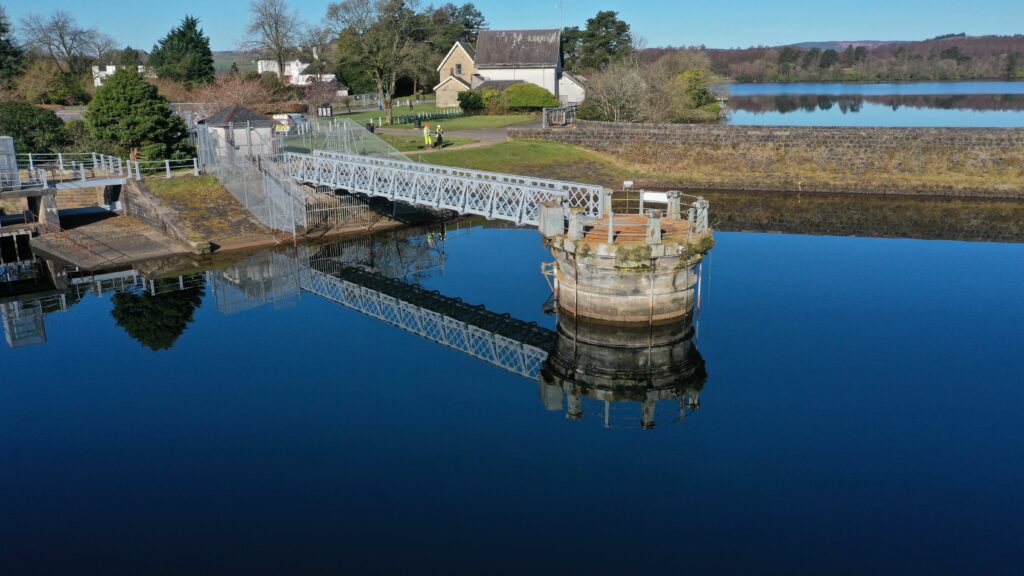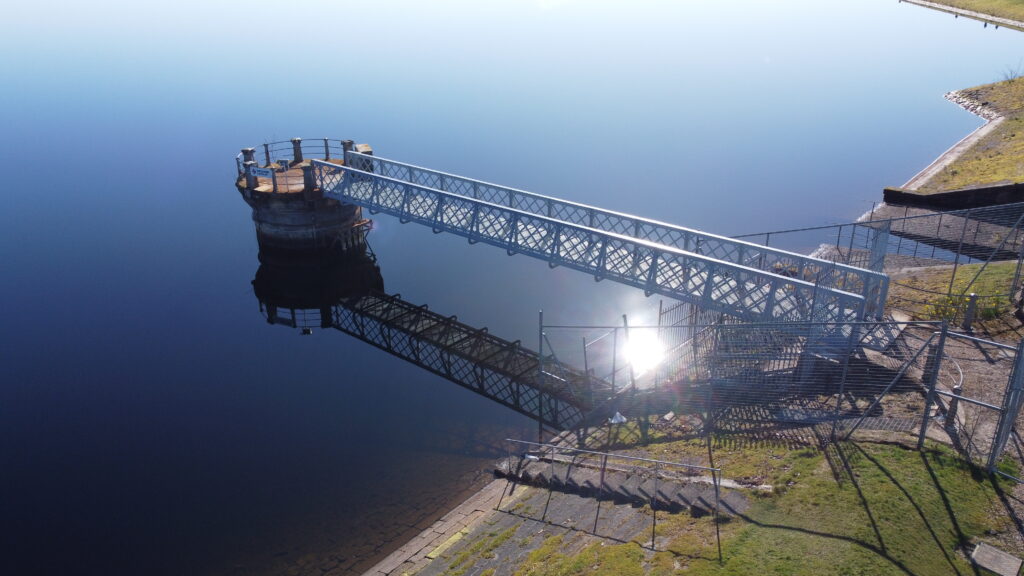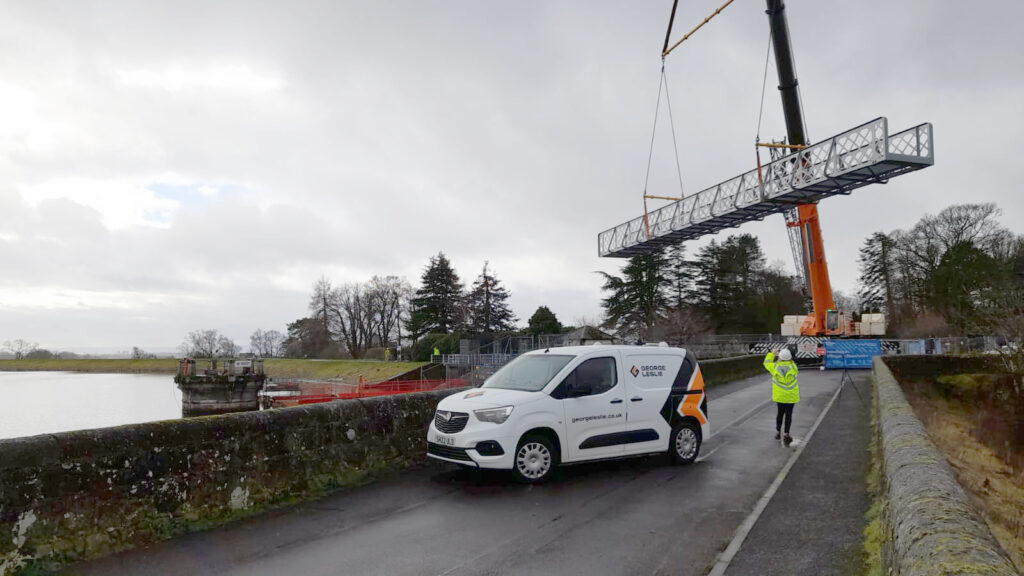George Leslie completed an operation to replace an aging 130-year-old bridge at Craigmaddie Reservoir in May 2023 as part of a massive facelift for the popular beauty spot on behalf of Scottish Water.
The complex operation was vital to upgrade key infrastructure at the reservoirs, which supply drinking water to much of Greater Glasgow.
The historic Valve Tower Bridge was in desperate need of a make-over but, due to its listed building status, it had to be replaced with an exact replica bridge made using GRP rather than cast iron. Working with specialist contractors Beaver Bridges and stonemasons Saltire Conservation, we successfully completed the upgrade works well within programme.


Gerry O’Hara, Scottish Water’s Project Manager, explained the challenges faced by the army of workers involved in the ten-day operation.
He said: “There were many aspects, not to mention many moving parts, which had to be given careful consideration to ensure overall success.
“A temporary road bridge also had to be constructed to ensure key infrastructure was protected on site. And that was all before the main works at Craigmaddie Valve Tower Bridge could begin!”
Gerry added: “I am really proud of how the site team pulled together to deliver this project. They took everything in their stride and worked together to achieve the best outcome for the reservoir and for visitors to the area. The new valve tower bridge is looking great and will serve the reservoir well into the future.”


Work to upgrade the footpaths around the Milngavie Reservoirs began in August 2023 and were complete in time for the Summer of 2024.
To minimise disruption, the improvement works were carried out in phases and on a rolling-basis around the reservoirs to allow the public to enjoy these scenic views and keep a very much ‘open for business’ approach during the project delivery.
Environmental benefits were achieved using a responsibly sourced, recycled footpath product to improve the main walking routes around the reservoirs whilst the use of recycled road arisings rather than primary aggregates helped to reduce waste and conserve scarce resources.
